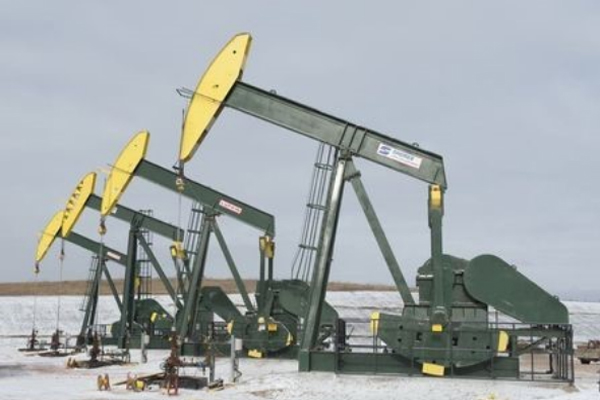
Oil prices rose more than 3 per cent on Wednesday, recouping a big chunk of the previous session's steep losses, as major producers prepared to discuss how to respond to the threat of a hit to fuel demand from the Omicron variant of the coronavirus.
Brent crude futures rose $2.46, or 3.6 per cent, to $71.69 a barrel at 0742 GMT, after rising to as high as $71.95 earlier in the day. The benchmark had slumped 3.9 per cent on Tuesday.
US West Texas Intermediate (WTI) crude futures rose $2.13, or 3.2 per cent, to $68.31 a barrel, after a 5.4 per cent drop on Tuesday.
The Organization of the Petroleum Exporting Countries (Opec) will meet on Wednesday after 1300 GMT and ahead of a meeting on Thursday of Opec+, which groups Opec with allies including Russia.)
"Considering the weak price actions and recent Omicron developments, Opec+ may intend to be more cautious on production increases," said Leona Liu, analyst at Singapore-based DailyFX.
"The market expects the cartel may forego its proposed production plan for a while."
Some analysts expect Opec+ to pause plans to add 400,000 barrels per day of supply in January in light of the potential hit to demand from travel curbs to rein in the spread of the Omicron variant.
"Since (the) US and other countries agreed on releasing emergency stocks to control the price rise... also since the prices have already corrected from $85 a barrel to close to $70, Opec+ may revisit their strategy," said Sunil Katke, head of commodities retail business at Kotak Securities.
Several Opec+ ministers, though, have said there was no need to change course.
But even if Opec+ agrees to go ahead with its planned supply increase in January, producers may struggle to add that much.
A Reuters survey found Opec pumped 27.74 million bpd in November, up 220,000 bpd from the previous month, but that was below the 254,000 bpd increase allowed for Opec members under the Opec+ agreement.
In a sign of bearish demand, data from the American Petroleum Institute industry group showed US crude stocks fell by 747,000 barrels in the week ended Nov. 26, according to market sources, which was a smaller decline than expected.
Ten analysts polled by Reuters were expecting crude stockpiles to fall by about 1.2 million barrels. --Reuters


































































